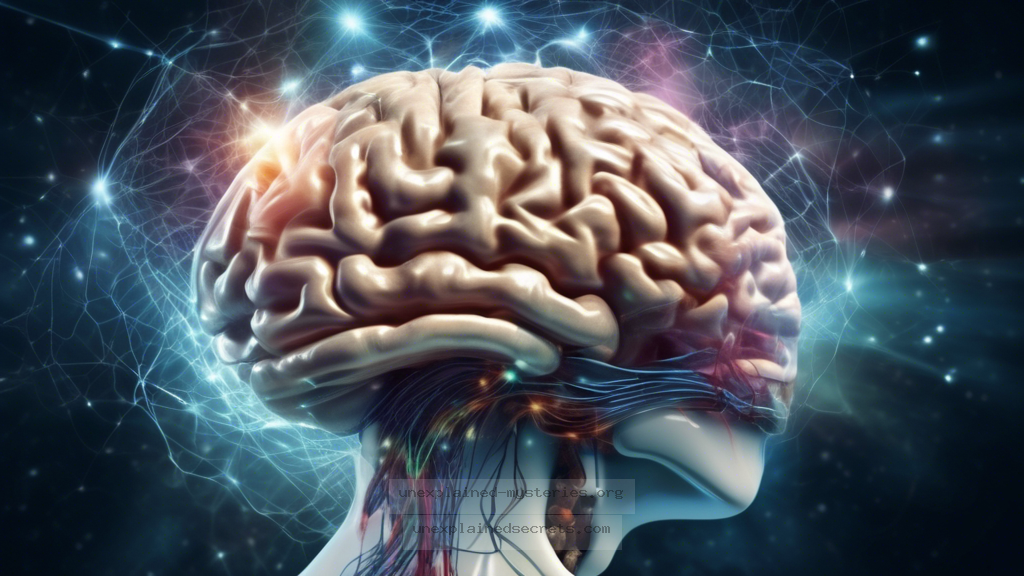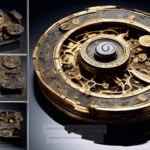Is Consciousness Truly Independent of the Brain? An Exploration of Near-Death Experiences
Is Consciousness Truly Independent of the Brain? An Exploration of Near-Death Experiences
The realm of consciousness and its connection to the physical body has fascinated humanity for centuries. Among the most compelling pieces of evidence in this debate are Near-Death Experiences (NDEs), which often challenge our understanding of life, death, and what lies beyond. Are these experiences mere byproducts of neurological activity, or do they indicate that consciousness can exist independently of the brain? This question is not merely academic; it touches on fundamental aspects of existence, spirituality, and the human experience.
Understanding Near-Death Experiences
Near-Death Experiences are profound psychological events that can occur to individuals who have been clinically dead or near death. These experiences often involve a range of phenomena, including feelings of peace, detachment from the body, entering a tunnel, seeing bright lights, and encountering deceased loved ones or spiritual beings. While some skeptics argue that these experiences can be explained by brain chemistry and physiological responses, many individuals report transformative insights and changes in their beliefs following an NDE.
- Approximately 10-20% of people who have undergone cardiac arrest report NDEs.
- Common elements include a sense of detachment from the body, a feeling of peace, and encounters with otherworldly beings.
- NDEs can lead to lasting changes in personality and beliefs, often increasing spirituality.
Historical Context of NDEs
The phenomenon of NDEs is not a modern invention; accounts of such experiences have existed throughout history across various cultures. In ancient texts, like the Tibetan Book of the Dead, there are descriptions of what happens after death that parallel contemporary NDE accounts. Similarly, the Bible contains stories of individuals who experienced visions of the afterlife. In the 20th century, the term “Near-Death Experience” became popularized thanks to researchers like Dr. Raymond Moody, whose 1975 book, “Life After Life,” brought the subject into the mainstream. This historical context is crucial as it illustrates the enduring nature of these experiences and their significance in human culture.
Core Concepts and Theories Surrounding NDEs
Various theories attempt to explain NDEs, ranging from psychological to spiritual perspectives. The physiological explanations suggest that NDEs are the result of the brain’s response to trauma, where a cocktail of neurotransmitters and chemicals, such as endorphins and serotonin, flood the brain, leading to euphoric sensations. On the other hand, spiritual explanations propose that consciousness exists beyond the physical confines of the brain, suggesting that NDEs are glimpses into an afterlife or alternate dimension.
The Evidence: Case Studies of NDEs
Numerous documented cases highlight the intriguing nature of NDEs. One notable case is that of Dr. Eben Alexander, a neurosurgeon who had a profound NDE while in a coma due to a rare brain infection. During his experience, he reported vivid encounters and a sense of unconditional love, leading him to question the scientific understanding of consciousness. Another compelling case involves a woman named Pam Reynolds, who underwent a surgical procedure during which she experienced an NDE. Despite being clinically dead, she accurately described details of her surgery that were unknown to her prior to the event.
| Case Study | Key Details | Impact |
|---|---|---|
| Dr. Eben Alexander | Coma due to brain infection; experiences profound spiritual insights. | Challenges conventional scientific views on consciousness. |
| Pam Reynolds | Underwent brain surgery; reported accurate details of her procedure. | Provided evidence for consciousness existing independently of the brain. |
Practical Implications of NDEs
The implications of NDEs extend beyond individual experiences; they challenge existing paradigms in psychology, medicine, and spirituality. For healthcare professionals, understanding the transformative potential of NDEs can lead to more compassionate end-of-life care. Additionally, these experiences can offer comfort to both patients and their families, providing hope and a sense of connection to something greater than themselves. In a world where death is often viewed with fear, NDEs can foster a more accepting perspective on life’s inevitable end.
Alternative Perspectives: Skepticism vs. Belief
While many embrace NDEs as evidence of an afterlife or spiritual existence, skepticism remains prevalent. Critics argue that NDEs can be explained through naturalistic means, such as oxygen deprivation or the brain’s chemical responses to trauma. Some scientists maintain that these experiences are merely brain-generated illusions, dismissing the possibility of consciousness persisting after death. This ongoing debate highlights the complexity of the subject and the need for further research.
Common Misconceptions and Clarifications
Several misconceptions surround the topic of NDEs. One common myth is that all NDEs are positive experiences; however, some individuals report distressing NDEs, which are often referred to as “hellish” experiences. These can lead to profound changes in individuals’ lives and are just as valid as more typical accounts. Another misconception is that NDEs are solely religious phenomena; in reality, people from various cultural and religious backgrounds report similar experiences, indicating a universal aspect of the human experience of death.
- All NDEs are positive—some can be distressing.
- NDEs are exclusive to religious individuals—people of all beliefs report them.
Best Practices for Investigating NDEs
For those interested in studying NDEs, several best practices can enhance the investigation of this complex topic. First, it is essential to approach the subject with an open mind while also applying a critical lens. Recording and analyzing accounts with attention to detail can yield valuable insights. Engaging with interdisciplinary perspectives, combining insights from psychology, neuroscience, and spirituality, can also provide a more comprehensive understanding. Furthermore, fostering dialogue between skeptics and believers may facilitate a richer exploration of consciousness and its mysteries.
Future Developments and Ongoing Research
The field of NDE research is evolving, with ongoing studies investigating the neurological basis of these experiences. Recent advancements in brain imaging technology may offer insights into the brain’s activity during critical moments of NDEs. Additionally, researchers are exploring the implications of NDEs for our understanding of consciousness, potentially bridging the gap between science and spirituality. As societal attitudes towards death and spirituality continue to shift, NDEs may play a crucial role in reshaping our understanding of consciousness and the afterlife.
Conclusion: The Ongoing Mystery of Consciousness
The question of whether consciousness is independent of the brain remains one of the most profound mysteries in human existence. Near-Death Experiences provide compelling anecdotal evidence that challenges traditional views of consciousness, suggesting that there may be more to our existence than what we can perceive physically. As research continues to uncover the complexities of NDEs, we may find ourselves closer to understanding not only the nature of consciousness but also the very essence of what it means to be human. The exploration of NDEs invites us to consider our beliefs about life, death, and the possibility of an existence beyond our physical form, creating a rich tapestry of inquiry that spans science, spirituality, and philosophy. 💡
Other Articles
Recent Posts
- What Happened to Flight MH370? The Conspiracy Theories That Still Haunt Us
- What Secrets Lurk Within the Walls of the Infamous Trans-Allegheny Lunatic Asylum?
- What Evidence Supports the Existence of Bigfoot in the Pacific Northwest?
- What Happened to the Indus Valley Civilization? Unraveling the Mysteries of Ancient Urban Life
- Can Telepathy Be Scientifically Proven Through Laboratory Evidence?







